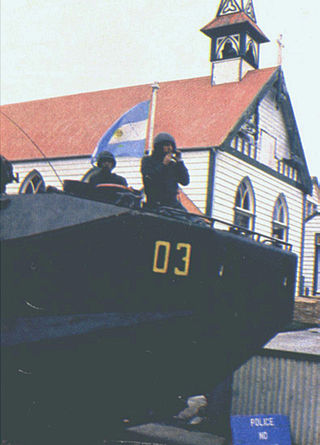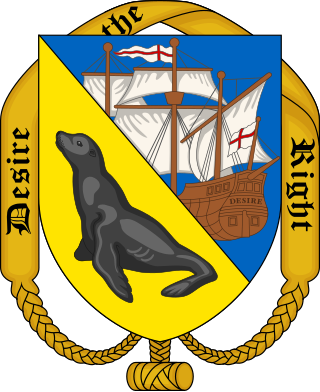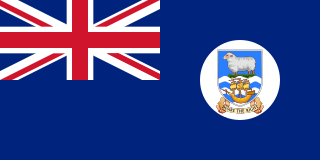
This is a list of countries and dependent territories in the Americas by population, which is sorted by the 2015 mid-year normalized demographic projections.

This is a list of countries and dependent territories in the Americas by population, which is sorted by the 2015 mid-year normalized demographic projections.
| Rank | Country (or dependent territory) | Population (2023) | % of pop. (2022) | Average relative annual growth (%) [1] (2022) | Average absolute annual growth (2015) [2] | Date of last figure | Source |
|---|---|---|---|---|---|---|---|
| 1 | 339,979,847 | 32.41 | 0.75 | 2,377,000 | March 24, 2023 | Official population clock | |
| 2 | 217,637,297 | 20.82 | 0.86 | 1,750,000 | May28, 2024 | Official population clock | |
| 3 | 130,000,000 | 12.32 | 1.08 | 1,293,000 | March 2, 2020 | Official estimate | |
| 4 | 52,049,498 | 4.99 | 1.16 | 555,000 | June 25, 2021 | Official population clock | |
| 5 | 46,208,747 | 4.48 | 1.09 | 463,000 | July 1, 2021 | Official estimate | |
| 6 | 38,395,507 | 3.75 | 0.79 | 279,000 | March 24, 2021 | Official estimate | |
| 7 | 34,035,304 | 3.23 | 1.10 | 338,000 | July 1, 2021 | Official estimate | |
| 8 | 28,705,000 | 2.80 | 1.37 | 414,000 | July 1, 2021 | Official estimate | |
| 9 | 19,678,363 | 1.92 | 1.05 | 187,000 | June 30, 2021 | Official estimate | |
| 10 | 18,697,380 | 1.73 | 1.57 | 252,000 | May28, 2024 | Official population clock | |
| 11 | 17,109,746 | 1.67 | 2.93 | 461,000 | July 1, 2021 | Official estimate | |
| 12 | 12,797,257 | 1.15 | 0.25 | 28,000 | July 1, 2021 | Official estimate | |
| 13 | 11,743,017 | 1.14 | 1.73 | 179,000 | July 1, 2020 | Official estimate | |
| 14 | 11,193,470 | 1.09 | 2.31 | 248,000 | December 31, 2019 | Official estimate | |
| 15 | 10,535,535 | 1.03 | 0.98 | 97,000 | July 1, 2021 | Official estimate | |
| 16 | 10,200,000 | 0.92 | 2.29 | 200,000 | July 1, 2021 | Official estimate | |
| 17 | 7,353,038 | 0.71 | 1.58 | 109,000 | Official estimate | ||
| 18 | 6,825,935 | 0.66 | 2.37 | 151,000 | June 30, 2012 | Official estimate | |
| 19 | 6,527,691 | 0.63 | 0.92 | 59,000 | 2016 | Official estimate | |
| 20 | 5,163,038 | 0.50 | 1.63 | 78,000 | June 30, 2015 | Official estimate | |
| 21 | 4,278,500 | 0.41 | 1.37 | 51,000 | May 22, 2018 | Official estimate | |
| 22 | 3,554,915 | 0.34 | -1.13 | -40,000 | July 1, 2014 | Official estimate | |
| 23 | 2,900,000 | 0.26 | 0.26 | 7,000 | December 31, 2014 | Official estimate | |
| - | 2,700,000 | 0.31 | 0.18 | 6,000 | June 30, 2016 | Official estimate | |
| 24 | 1,366,725 | 0.13 | 0.52 | 7,000 | 2015 | Official estimate | |
| 25 | 743,699 | 0.07 | 0.00 | 0 | September 15, 2012 | Final 2012 census result | |
| 26 | 590,100 | 0.05 | 1.08 | 6,000 | August 13, 2012 | Final 2012 census result | |
| 27 | 419,199 | 0.04 | 0.25 | 1,000 | January 1, 2017 | Official estimate | |
| - | 405,000 | 0.03 | -0.52 | -2,000 | January 1, 2017 | Official estimate | |
| 28 | 393,450 | 0.03 | 2.50 | 9,000 | |||
| - | 383,000 | 0.03 | 1.34 | 5,000 | 2015 | Official estimate | |
| 29 | 288,000 | 0.02 | 0.35 | 1,000 | May 1, 2010 | 2010 census result | |
| - | 262,000 | 0.02 | 2.75 | 7,000 | January 1, 2017 | Official estimate | |
| 30 | 178,696 | 0.01 | 0.58 | 1,000 | May 10, 2010 | Preliminary 2010 census result | |
| - | 156,223 | 0.01 | 0.64 | 1,000 | January 1, 2014 | Official estimate | |
| 31 | 113,000 | 0.01 | 1.85 | 2,000 | 2015 | Official estimate | |
| - | 111,904 | 0.01 | 0.00 | 0 | 2014 | Official estimate | |
| 32 | 110,696 | 0.01 | 0.00 | 0 | April 1, 2010 | 2010 census result | |
| - | 104,000 | 0.01 | 0.00 | 0 | May 12, 2011 | Final 2011 census result | |
| 33 | 99,337 | 0.00 | 1.14 | 1,000 | May 27, 2011 | Final 2011 census result | |
| 34 | 72,000 | 0.00 | 0.00 | 0 | May 14, 2011 | Preliminary 2011 census result | |
| - | 64,958 | 0.00 | 0.00 | 0 | May 20, 2010 | Final 2010 census result | |
| - | 64,055 | 0.00 | 3.51 | 2,000 | December 31, 2014 | Official estimate | |
| - | 56,421 | 0.00 | 0.00 | 0 | July 1, 2015 | Official estimate | |
| 35 | 54,000 | 0.00 | 0.00 | 0 | May 15, 2011 | 2011 census result | |
| - | 42,953 | 0.00 | 2.63 | 1,000 | February 1, 2014 | Official estimate | |
| - | 40,614 | 0.00 | 5.71 | 2,000 | January 25, 2012 | Preliminary 2012 census result | |
| - | 34,065 | 0.00 | 0.00 | 0 | January 1, 2017 | Official estimate | |
| - | 30,000 | 0.00 | 3.33 | 1,000 | July 12, 2010 | 2010 census result | |
| - | 25,157 | 0.00 | 4.00 | 1,000 | January 1, 2015 | Official estimate | |
| - | 15,000 | 0.00 | 0.00 | 0 | May 11, 2011 | Final 2011 census result | |
| - | 10,124 | 0.00 | 0.00 | 0 | January 1, 2017 | Official estimate | |
| - | 5,985 | 0.00 | 0.00 | 0 | January 1, 2017 | Official estimate | |
| - | 5,000 | 0.00 | 0.00 | 0 | May 12, 2011 | 2011 census result | |
| - | 3,398 | 0.00 | 0.00 | 0 | April 15, 2012 | Final 2012 census result | |
| - | 20 | 0.00 | 0.00 | 0 | January 1, 2018 | Final 2012 census result | |
| Total | 1,022,380,830 | 100.00 | 0.99 | 9,588,000 |

The history of the Falkland Islands goes back at least five hundred years, with active exploration and colonisation only taking place in the 18th century. Nonetheless, the Falkland Islands have been a matter of controversy, as they have been claimed by the French, British, Spaniards and Argentines at various points.

The Falklands War was a ten-week undeclared war between Argentina and the United Kingdom in 1982 over two British dependent territories in the South Atlantic: the Falkland Islands and its territorial dependency, South Georgia and the South Sandwich Islands. The conflict began on 2 April 1982, when Argentina invaded and occupied the Falkland Islands, followed by the invasion of South Georgia the next day. On 5 April, the British government dispatched a naval task force to engage the Argentine Navy and Air Force before making an amphibious assault on the islands. The conflict lasted 74 days and ended with an Argentine surrender on 14 June, returning the islands to British control. In total, 649 Argentine military personnel, 255 British military personnel, and three Falkland Islanders were killed during the hostilities.

1982 (MCMLXXXII) was a common year starting on Friday of the Gregorian calendar, the 1982nd year of the Common Era (CE) and Anno Domini (AD) designations, the 982nd year of the 2nd millennium, the 82nd year of the 20th century, and the 3rd year of the 1980s decade.
This article describes the composition and actions of the Argentine naval forces in the Falklands War. For a list of naval forces from the United Kingdom, see British naval forces in the Falklands War.

The Invasion of the Falkland Islands, code-named Operation Rosario, was a military operation launched by Argentine forces on 2 April 1982, to capture the Falkland Islands, and served as a catalyst for the subsequent Falklands War. The Argentines mounted amphibious landings and the invasion ended with the surrender of Falkland Government House.
Sovereignty over the Falkland Islands is disputed by Argentina and the United Kingdom. The British claim to sovereignty dates from 1690, when they made the first recorded landing on the islands, and the United Kingdom has exercised de facto sovereignty over the archipelago almost continuously since 1833. Argentina has long disputed this claim, having been in control of the islands for a few years prior to 1833. The dispute escalated in 1982, when Argentina invaded the islands, precipitating the Falklands War.

Sir Rex Masterman Hunt, was a British Government diplomat and colonial administrator. He was Governor, Commander-in-Chief, and Vice Admiral of the Falkland Islands between 1980 and September 1985. During the Argentine invasion of the islands in 1982, he was taken prisoner and temporarily removed from his position.

The Falkland Islands Defence Force (FIDF) is the locally maintained volunteer defence unit in the Falkland Islands, a British Overseas Territory. The FIDF works alongside the military units supplied by the United Kingdom to ensure the security of the islands.
The cultural impact of the Falklands War spanned several media in both Britain and Argentina. A number of films and television productions emerged from the conflict. The first Argentine film about the war was Los chicos de la guerra in 1984. The BBC drama Tumbledown (1988) tells the story of a British officer paralysed from a bullet wound. The computer game Harrier Attack (1983) and the naval strategy game Strike Fleet (1987) are two examples of Falklands-related games. A number of fictional works were set during the Falklands War, including in Stephen King's novella The Langoliers (1990), in which the character Nick Hopewell is a Falklands veteran. The war provided a wealth of material for non-fiction writers; in the United Kingdom (UK) an important account became Max Hastings and Simon Jenkins' The Battle for the Falklands.

The Falkland Islands is an archipelago in the South Atlantic Ocean on the Patagonian Shelf. The principal islands are about 300 mi (480 km) east of South America's southern Patagonian coast and about 752 mi (1,210 km) from Cape Dubouzet at the northern tip of the Antarctic Peninsula, at a latitude of about 52°S. The archipelago, with an area of 4,700 sq mi (12,000 km2), comprises East Falkland, West Falkland, and 776 smaller islands. As a British overseas territory, the Falklands have internal self-governance, but the United Kingdom takes responsibility for their defence and foreign affairs. The capital and largest settlement is Stanley on East Falkland.
There were many events leading to the 1982 Falklands War between the United Kingdom and Argentina over possession of the Falkland Islands and South Georgia.

The Falkland Islands Dependencies was the constitutional arrangement from 1843 until 1985 for administering the various British territories in Sub-Antarctica and Antarctica which were governed from the Falkland Islands and its capital Stanley.

The Falkland Islands have a complex history stretching over five hundred years. Active exploration and colonisation began in the 18th century but a self-supporting colony was not established till the latter part of the 19th century. Nonetheless, the islands have been a matter of controversy, as due to their strategic position in the 18th century their sovereignty was claimed by the French, Spaniards, British and Argentines at various points.

Foreign relations between the Argentine Republic and the United Kingdom of Great Britain and Northern Ireland have existed for over two centuries.

British sovereignty of South Georgia and the South Sandwich Islands is disputed by Argentina. The United Kingdom claimed South Georgia in 1775, annexed the islands in 1908, and has exercised de facto control with the exception of a brief period during the Falklands War in 1982, when the islands were partially controlled by Argentina. The dispute started in 1927 when Argentina claimed sovereignty over South Georgia, and subsequently expanded in scope with Argentina claiming the South Sandwich Islands in 1938. The islands have no indigenous population, and currently only have about 30 inhabitants.

Mario Benjamin Menéndez was the Argentine governor of the Falklands during the 1982 Argentine occupation of the islands. He also served in the Argentine Army. Menéndez surrendered Argentine forces to Britain during the Falklands War.

The aftermath of the 1982 Falklands War between the United Kingdom and Argentina affected world geopolitics, the local political culture in Argentina and the UK, military thought, medical treatment, and the lives of those who were directly involved in the war.
The 25th Mechanized Infantry Regiment is an infantry unit of the Argentine Army belonging to the 9th Mechanized Brigade, 3rd Army Division, and based at Sarmiento, Chubut, Argentina. This Regiment was the first army unit to land in the Falkland Islands on 2 April 1982 and fought in the Falklands War.

At 10:15 pm (BST) on the night of 14 June 1982, British prime minister Margaret Thatcher announced to the House of Commons that negotiations had begun for the surrender of the Argentine invasion force in the Falkland Islands, ending the Falklands War. Her statement noted that "they are reported to be flying white flags over Port Stanley", the capital of the Falklands. This was based on an erroneous report from a front-line unit; in fact, no white flags are known to have been flown, though Argentine resistance ended, and a ceasefire was in place. The surrender was finalised by 1:30 am BST on 15 June. Thatcher's statement was welcomed from all sides in the House, and she left to join celebrating crowds in Downing Street. She later described the statement as "perhaps the proudest moment of my life".

The South Atlantic conflict was a series of crises, undeclared wars, and other conflicts between Argentina, the United Kingdom, and later Chile in the Southern Atlantic Ocean. It was incited by the Argentine navy's prevention of the UK's reoccupation of its territories on the Antarctic Peninsula, and included the Falklands War and Invasion of South Georgia. The conflict, despite a large number of stalemates, ultimately ended in British victory.